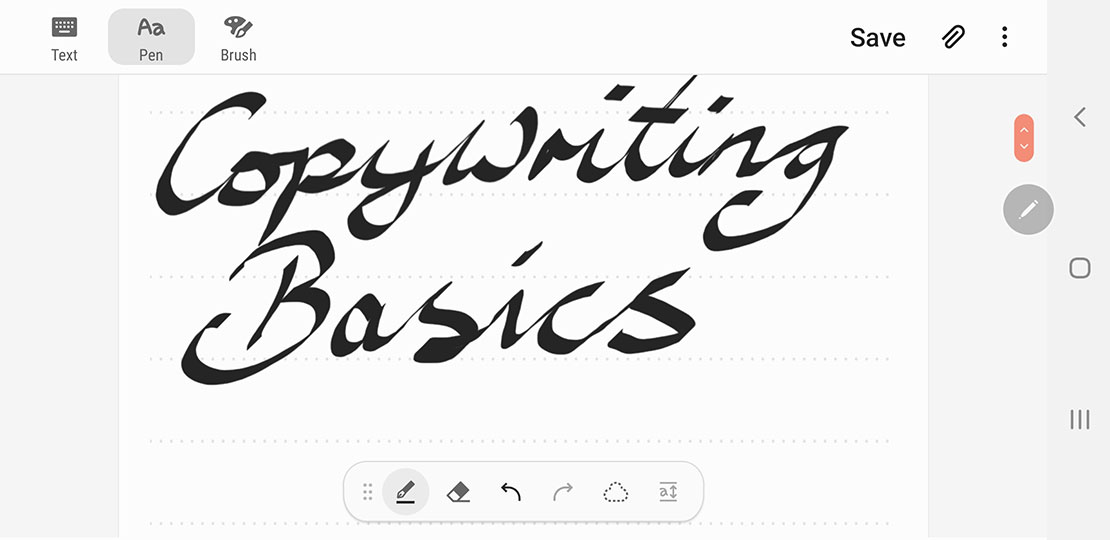What is ‘copywriting’? The term covers a lot of ground. It can refer to writing for the press or physical publications. It can also refer to website copywriting or copy for short. However, website copywriting is often much different from that which you’d find in papers and on flyers. But how and why?
The fact is, website copy does a very different job. The content you publish on a website is not just going to need to appeal to readers. It is also going to need to appeal to a global audience. What’s more, there are various techniques website copywriters use to make sure it is as effective as possible. But where do you even start when it comes to copywriting for an online audience? In this guide, we’ll take you through the absolute basics. We’ll also explore why it’s crucial to craft impeccable copy for your website’s visitors.
Quality Website Copywriting Generates Leads
The fact of the matter is high-quality web copy means more business for you. The difference between a successful website and one which is barely visited is the quality of its content.
Think about what converts people to want to continue browsing a website. They want to be able to find quick, straightforward answers to their questions. They want to be able to find their way to useful information without having to look too far. The key factors here are simplicity and specificity. Lead-generating website copy is straightforward and relevant to readers’ needs. Writing website copy without considering your audience is never going to go down well. Put yourself in your readers’ shoes.
That’s why it takes more than skill and technique to produce engaging website content. It takes time, effort, and a laser-sharp focus. It’s not always so easy to get right on your own.

The Difference Between Online and Offline Copy
To better understand how online content works, we need to consider how it is different from offline writing. In many ways, physical copy does the same thing. It’s written to entice readers, show solutions to common problems, and encourage action.
The critical difference, however, is the fact that a website is always available. Not everyone has access to a flyer or a specific newspaper article. Your website is going to be readily available to the broader public. Online content, it’s argued, can also catch more interest. Providing your search engine optimisation strategy is up to scratch, your target readers could fall across you at any given moment. That means your online content is going to need to work harder than any other copy you’ve produced.
But how can you make sure your content is working as hard as it needs to? Let’s take a close look.
Make Your Web Copy Digestible
Making your content easy to digest is a top priority. That is especially the case when it comes to appealing to mobile readers. They make up a significant portion of all web traffic. Anyone visiting you from a portable device is going to want to skim your content to find the answers they need. People want content which speaks to them. They also don’t want to have to dawdle. It helps to tell a story sometimes, but getting straight to the point is one of the most valuable things you can do. Why waste their time?
You can make your content more digestible by, for example, breaking things down into bullet points or using headings. Use contents pages or indexes if you need to. The world has changed to the extent that we now need quick, snappy answers to questions as soon as possible.
To convert a reader into a customer, or a follower, you need to answer questions directly. If a visitor to your site finds what they need, they will be more inclined to keep reading. They will also feel more inclined to connect with you.
Burying your message in a text which is hard to read avoids the object entirely. Website copywriting needs to be simple to navigate and easy to pore through. Give answers early, and often, and don’t waffle (if you can help it).

Be Careful with Purpose
So – you run a business. In all likelihood, the website you want is going to need to sell products. That’s all well and good, but how is your website copywriting going to do that?
The absolute worst thing you can do with web copy is, make it overly ‘salesy’. That is, make it evident that you’re aim is to sell something. Web content that’s selling a service or product should, of course, do some form of advertising. However, online customers are going to be turned off by jargon and unmistakable sales patter. Modern consumers appreciate well-written content with genuine value. Sales copy can feel hollow if it has no authenticity behind it. Your content is going to need to offer customers something they need, an answer to their questions, and a reason for getting behind you. Simply throwing products at your readers is considered poor engagement.
That’s why you should aim to provide your readers with engaging content first and sales copy second. The ‘hard sell’ may work in some environments but never online. Give your readers space to breathe. Let them see what you have to offer, but don’t force it.

Search Engine Optimisation (SEO) and Online Copywriting
If you know even a little bit about writing for the internet, you’ll probably have heard of SEO. SEO is, put, a list of instructions to help Google promote your website. SEO has changed dramatically over the years. Writers and designers need to keep up with all the changes likely to affect their clients. At a basic level, SEO revolves around using the right keywords associated with your niche and topic. However, your website should also be easy to read and simple to navigate. You should also be giving useful information upfront!
SEO is not the be-all and end-all of content writing for the web. No matter what some agencies may tell you, a few well-placed keywords come second to genuinely engaging copy. While smart keyword use is important, it’s not the whole picture. If your online content isn’t driving people to stay on-page, it’s all for nothing.
Writing for websites needs to be more than just a box-ticking exercise. The days of throwing a few words around and hoping for a sale are long gone. Today’s online readers are discerning and careful. As mentioned, they can also see through sales copy with ease.

Don’t Go It Alone
We will explore this a little more in a blog post; however, it’s an important point to make here. Content writing is something which takes time and effort to get right. We’ve explored this concept a little in our guide to blog post writing. The fact is, while you think you know how to get your copy reading perfectly, there’s never a guarantee.
The best copywriting specialists have years of experience in handling words for the web. That means that they’ve kept up to speed on all the changes to SEO. They’ve seen the evolution of mobile content, and they understand why sales copy is changing for the better.
What you can do in preparation for web copy, of course, is to plan ahead. It makes sense to have an outline of what your audience needs and how you intend to help them. You’ll be able to communicate your online needs to a copywriter who can directly convey that in concise copy.
Do Your Homework
Another difference in web copy is the fact that you can directly link to sources. It’s a good idea to research your field and any topics you wish to talk about. However, linking and citing helps to put you in even greater favour with your readers. What’s more, authority links will help to encourage people to share your name.
The aim of online copywriting is to help you become an authority in your field. That is, someone that people can turn to, and link to, for useful advice. There is no better way to gain traction for traffic online. Therefore, linking to authorities can help to speed up the process for you.
Final Thoughts
This is just the beginning of your journey into writing for the web. Your needs will likely vary. However, the basics are the same.
The internet demands content which is simple, direct, and genuinely informative. Even if you are selling a product, your focus should be on informing or sharing ideas with your readers. It can often be tricky to perfect, but with the right copywriting team, you’ll be producing effective content in no time at all.
This article has a guide to e-commerce copywriting companion and is just one of the educational resources Premier Prose provides. Take a look at some of our further writing guides and blog posts to learn more about what makes the written word so powerful. We have lots of expertise and information to share with you.



